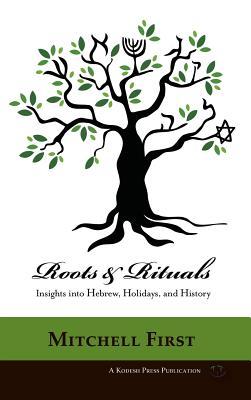Mitchell First's 62 short articles address interesting questions about the Hebrew language, liturgy, Jewish history, and the calendar and holidays. For example: On Jewish Liturgy: the origin of the Haftarah, the origin of the blessing "Who Has Not Made Me A Woman," and the origin of our prayer for the government.On Jewish Holidays and Calendar: the origin of the count from creation, the meaning of Yom Teruah, the meaning of "Maccabee," identifying Achashverosh and Esther in secular sources, and the original three questions in the Mah Nishtannah.On Hebrew Language: the origin of the words brit, boker, hefker, chalom, chatan, kesef, midbar, navi, olam, she'ol, and seraphim. Also, is there a connection between זכר meaning "male" and זכר meaning "memory"? Is there a connection between לחם and מלחמה? He also has articles on words that appear only once in Tanakh, biblical words of Egyptian origin, wordplay in Tanakh, and interesting words in the daily Amidah.This book also includes two longer articles: "The Meaning of the Word Hitpallel (התפלל)" and "The Root of the Word מבול A Flood of Possibilities."

Roots and Rituals: Insights into Hebrew, Holidays, and History
Mitchell First's 62 short articles address interesting questions about the Hebrew language, liturgy, Jewish history, and the calendar and holidays. For example: On Jewish Liturgy: the origin of the Haftarah, the origin of the blessing "Who Has Not Made Me A Woman," and the origin of our prayer for the government.On Jewish Holidays and Calendar: the origin of the count from creation, the meaning of Yom Teruah, the meaning of "Maccabee," identifying Achashverosh and Esther in secular sources, and the original three questions in the Mah Nishtannah.On Hebrew Language: the origin of the words brit, boker, hefker, chalom, chatan, kesef, midbar, navi, olam, she'ol, and seraphim. Also, is there a connection between זכר meaning "male" and זכר meaning "memory"? Is there a connection between לחם and מלחמה? He also has articles on words that appear only once in Tanakh, biblical words of Egyptian origin, wordplay in Tanakh, and interesting words in the daily Amidah.This book also includes two longer articles: "The Meaning of the Word Hitpallel (התפלל)" and "The Root of the Word מבול A Flood of Possibilities."